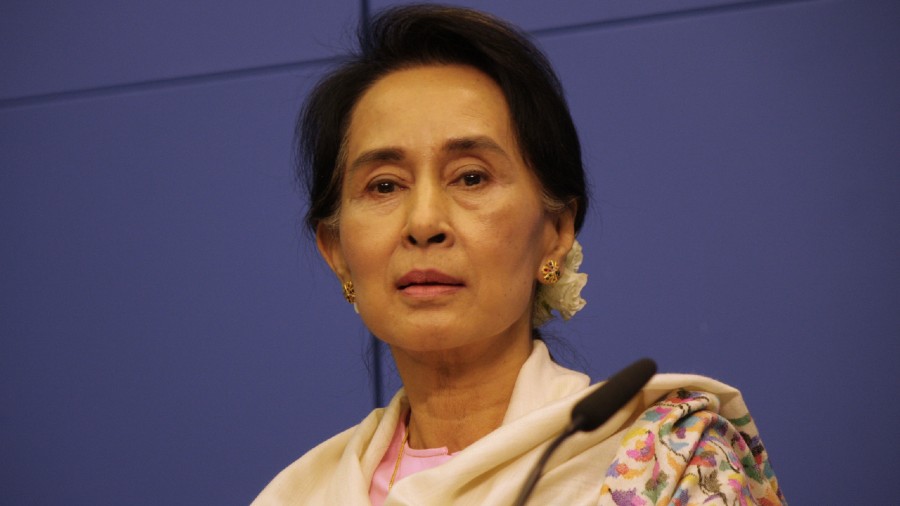Aung San Suu Kyi, the Myanmar civilian leader deposed by the military in a coup, was charged on Wednesday with an obscure infraction of having illegally imported at least 10 walkie-talkies, according to an information officer from her National League for Democracy party. The violation can be punishable by up to three years in prison.
The court detention order, provided by officials from the party that governed Myanmar until the putsch on Monday, was dated on the day of the coup and authorises Aung San Suu Kyi’s detention for 15 days. The document said that soldiers searching her villa in Naypyidaw, the capital, had turned up various pieces of communications equipment that had been brought into the country without proper paperwork.
It was a bizarre postscript to a fraught 48 hours in which the army placed the country’s most popular leader back under house arrest and extinguished hopes that the Southeast Asian nation could one day serve as a beacon of democracy in a world awash with rising authoritarianism.
The coup unseated an elected government that, during its five-year tenure, received two resounding voter mandates, most recently in general elections last November.
As the pre-dawn putsch progressed, the military, which had ruled the country outright for nearly five decades before its brief experiment in democracy was quashed, resorted to the familiar playbook of dictatorship: shutting down Internet service, suspending flights and detaining its critics. Apart from Aung San Suu Kyi, the list of those who were rounded up included her most loyal ministers, Buddhist monks, writers, activists and a filmmaker.
Still, in the stunned silence that followed the military’s seizure of power, few soldiers patrolled the streets.
By Monday evening, Aung San Suu Kyi was back in her villa in Naypyitaw, rather than languishing in one of the country’s notorious prison cells.
There were no further mass detentions, and the Internet came back online.
On Tuesday, activists organised small civil disobedience campaigns, banging pots and pans or honking their car horns to protest the coup.
New York Times News Service










